
Opening of the Academic Year: ‘Our university world knows no borders’
The theme of the opening of this year’s academic year was peace and justice. With the climate crisis and the war in Ukraine, these are turbulent times. During the ceremony those present reflected on what the academic community and universities can mean in times of crisis and conflict.
Gaia, the touring artwork by British artist Luke Jerram, floats in a packed Pieterskerk. The enormous globe shows the world in its beauty and breadth and ties in with the theme of peace and justice. A fitting symbol for this opening of the new academic year.
Willing to take responsibility
In her opening speech Annetje Ottow, President of the Executive Board, spoke about what the academic community and universities can mean in tackling these complex challenges. ‘As manifest as borders are in a time of war, so absent they are in our university world.’ Collaboration between different disciplines at our university helps us address complex global challenges, Ottow said. ‘We truly believe that universities can contribute to breakthroughs in global crises and are willing to take this responsibility.’

In her speech Ottow also had a clear message for the keynote speaker, Minister of Foreign Affairs Wopke Hoekstra. ‘Not only are we pressing for the knowledge held by universities to be used in developing and implementing government policy, but we are also pushing for the realisation that our position makes us eminently qualified for diplomacy. Our neutral academic practice, based on knowledge and facts, can be a crucial factor in international relations.’
‘War is a wake-up call’
‘With the completely illegal invasion of Ukraine, Russia has dragged us back to a time of war,’ said Wopke Hoekstra, Ministry of Foreign Affairs and Leiden alumnus at the start of his speech. Ukrainians are fighting for values such as freedom and self-determination, he emphasised. ‘The war is a wake-up call, but the reality is that we have been geopolitically challenged for longer by countries like Russia and China.’ We have invested too little in defence and security, he warned, and are also too vulnerable in our energy supply. Hoekstra called for firm European geopolitics with countermeasures if a member is put under pressure. ‘Our continent must become more resilient and take more responsibility for its economic security and defence.’ More should therefore be invested in defence, he said, and it is crucial to act in concert with the US.
Hoekstra is worried that around half of the world’s population lives in countries that have not condemned the Russians within the UN. We must also keep on talking to these countries, the minister said. And finally Hoekstra, who studied law in Leiden, addressed all students. ‘It’s a long list of challenges that the world and the Netherlands are facing. But don’t let it intimidate you. Every generation manages to find answers to the big questions of their time. That won’t be any different for you.’
After his speech Hoekstra answered questions from Leiden researchers Larissa van den Herik, Vanessa Newby, Isabelle Duijvesteijn and Gjovalin Macaj, with Joachim Koops as moderator. They talked about the sanctions policy, the possible outcome of a victory in the war in Ukraine and women’s rights.
-
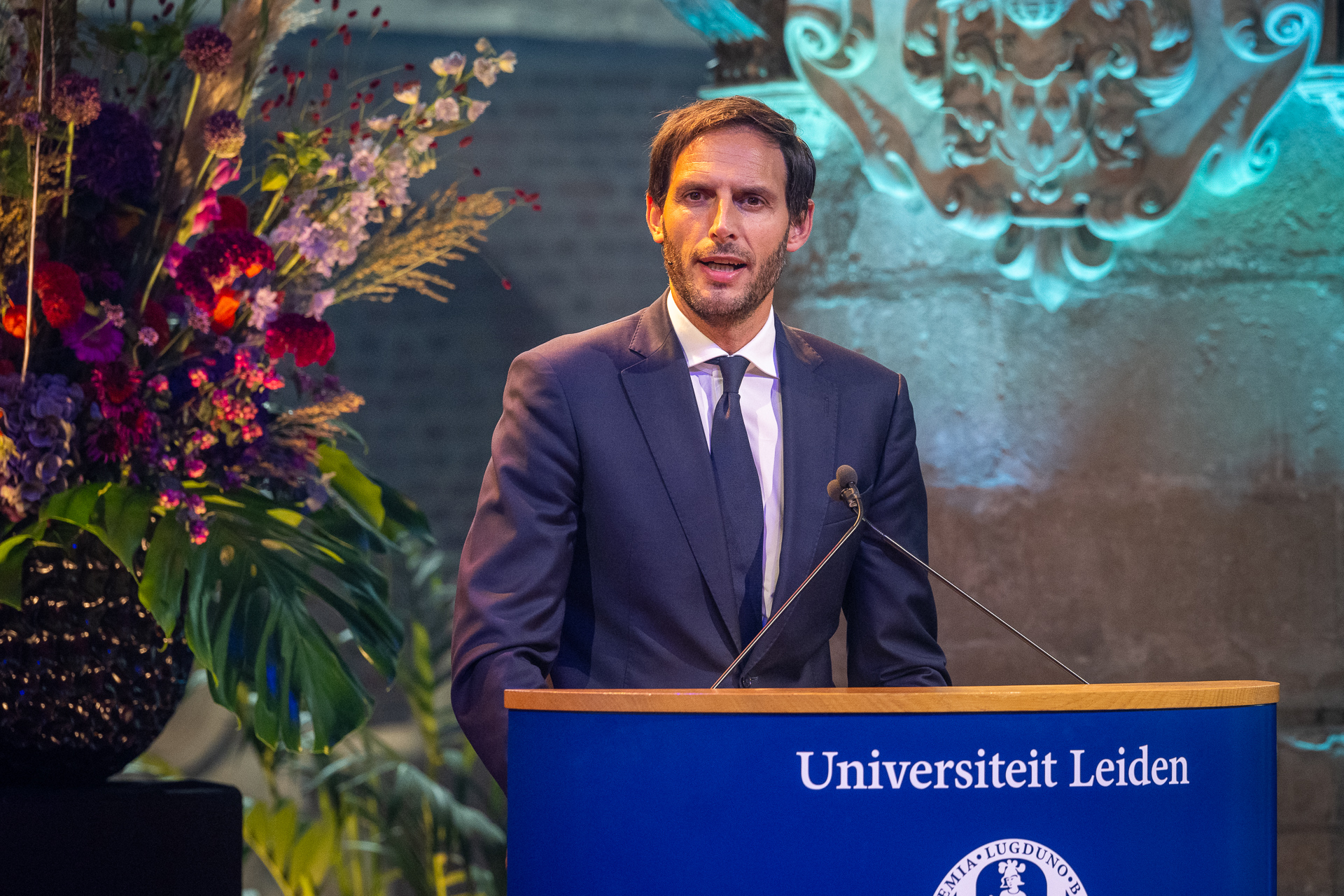
‘Our continent must become more resilient and take more responsibility for its economic security and defence.’ -
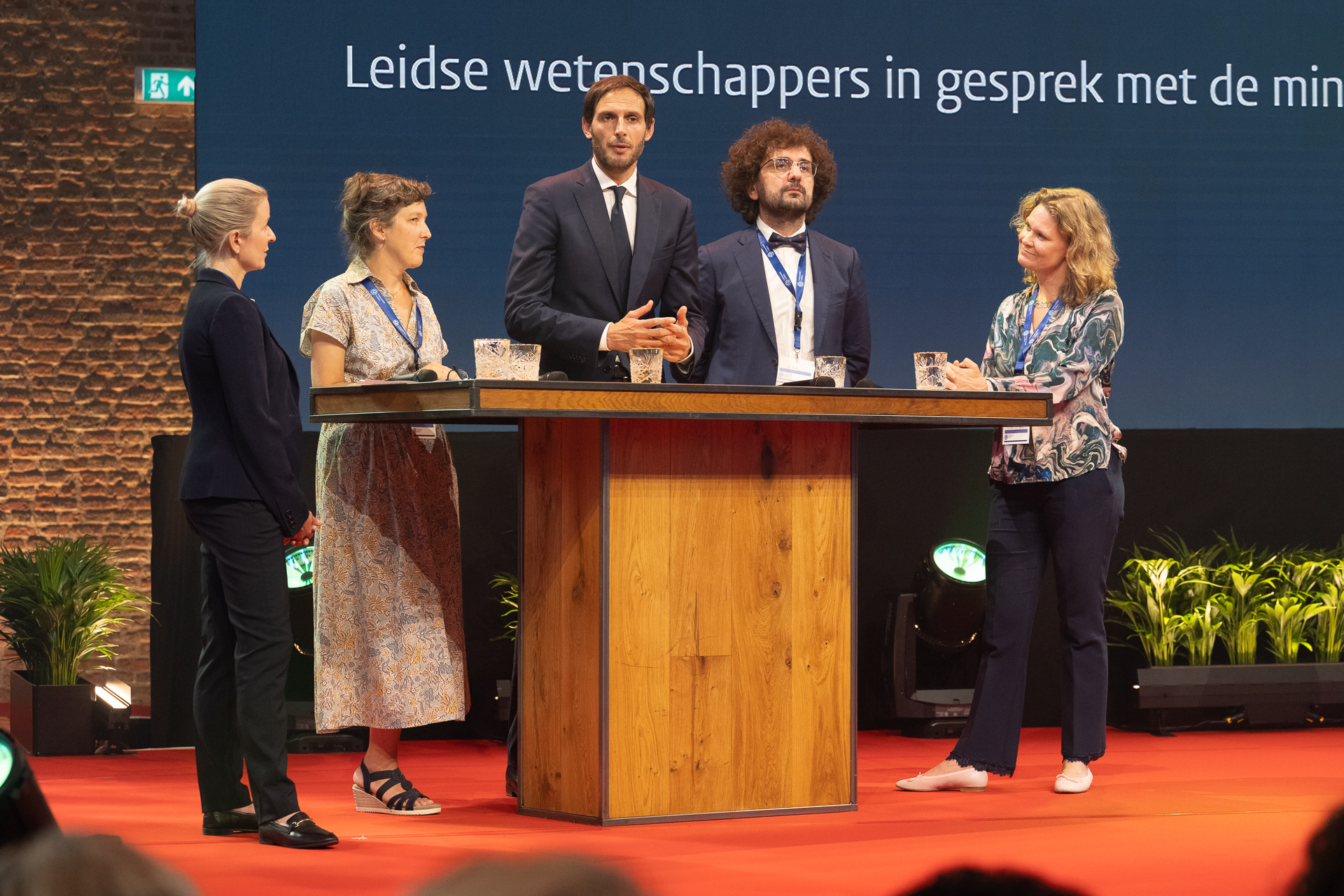
Wopke Hoekstra in a discussion with researchers.
Studying with a disability
After a musical interlude by vocalists from the Leiden Student Choir and Collegium Musicum Orchestra, Hester Bijl took the floor. What if students cannot take peace and freedom for granted? This was the topic of Bijl’s speech. ‘A war has a huge impact on students and staff with ties to that country,’ she said. The war in Ukraine has led to many different types of support within our academic community, such as an emergency fund, a mentor network and placements for Ukrainian researchers. Moreover, the University has an important role with its myriad research into war and conflict and their resolution.
And students with a disability or mental health problems do not have the full freedom to study as they would like to, said Bijl. More and more students need support and that applies in particular to international students. As a university we have to create a pleasant study environment, which is why all the faculties have well-being officers, support groups and buddies.
-
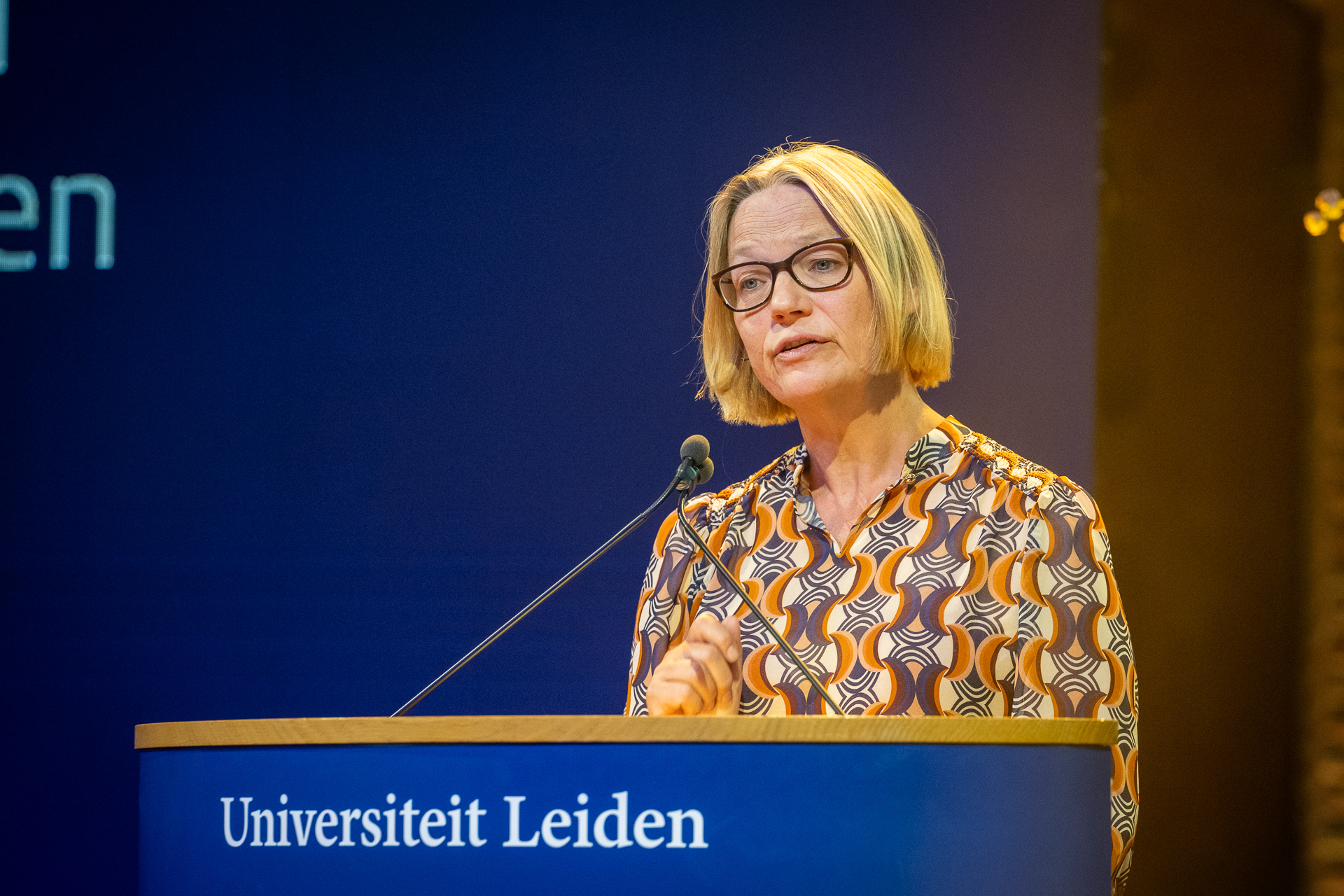
Hester Bijl: ‘More and more students need support and that applies in particular to international students.’ -
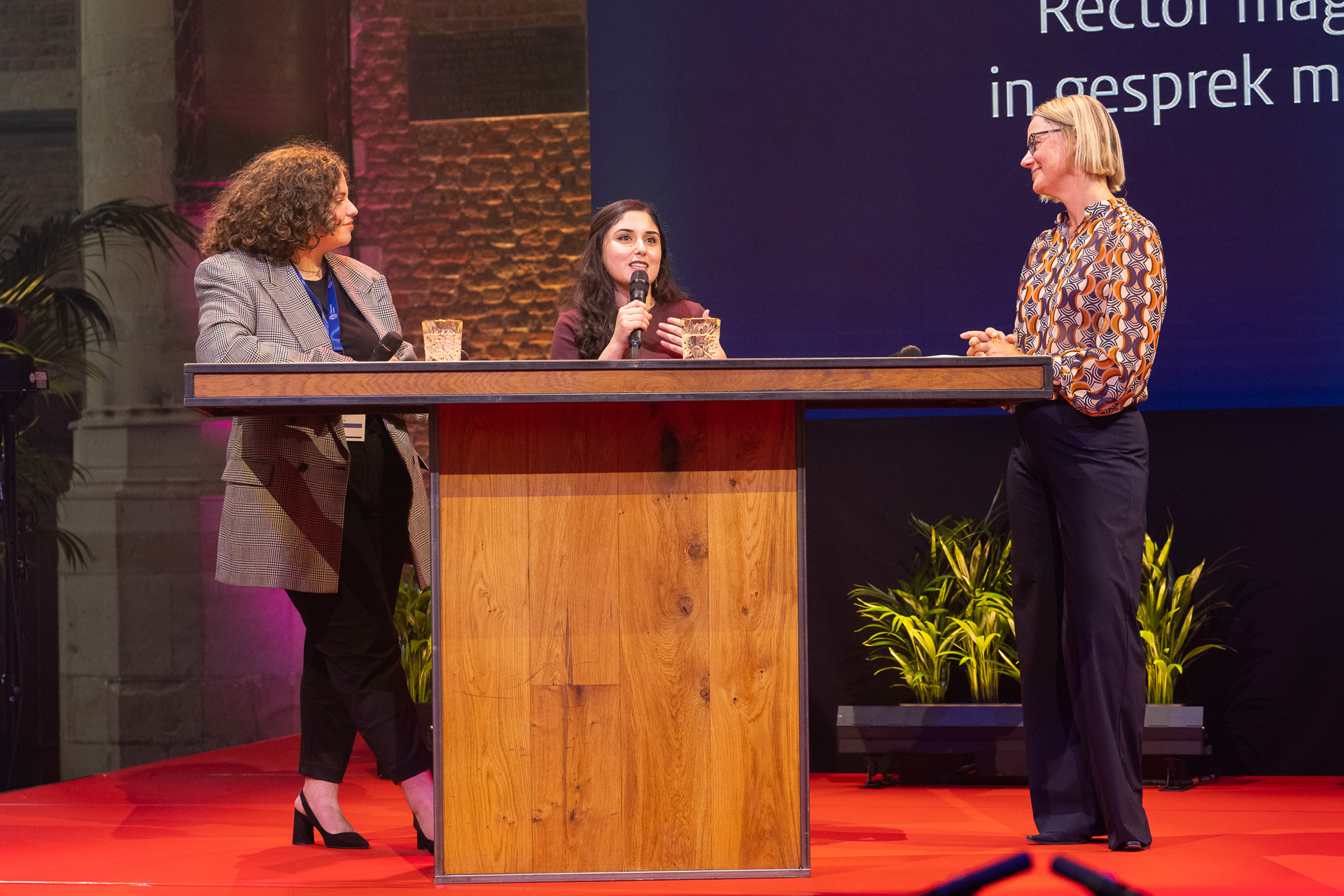
Leonor Albuquerque Amaral, Hawra Nissi and Hester Bijl.
Then Bijl spoke to two students who devote their efforts to helping their fellow students. Leonor Albuquerque Amaral, an International Studies student is committed to supporting people with a disability. History student Hawra Nissi is a firm advocate for international students’ well-being. Bijl asked the students what they advised. Leonor called for more flexibility in the teaching, such as more online options, to make it easier for students with a disability to study. Hawra asked for more appreciation of students with a non-Western educational background and more understanding of students who have experienced trauma.

Leiden Teaching Prize
In a short speech Catrin Böcher, chair of the Leiden University Student Platform, announced the winner of the Leiden Teaching Prize. This annual prize is awarded to the best lecturer of the year, following a voting round for students. University historian Pieter Slaman and archaeologist Dennis Braekmans were praised for their teaching methods, but the prize went to ecologist Emily Strange. ‘With an enormous passion for her subject and her engaging personality, she motivates her students and shares her knowledge with them.’ Strange was delighted with the prize. ‘This award means so much to me because it comes from the students themselves.’
-
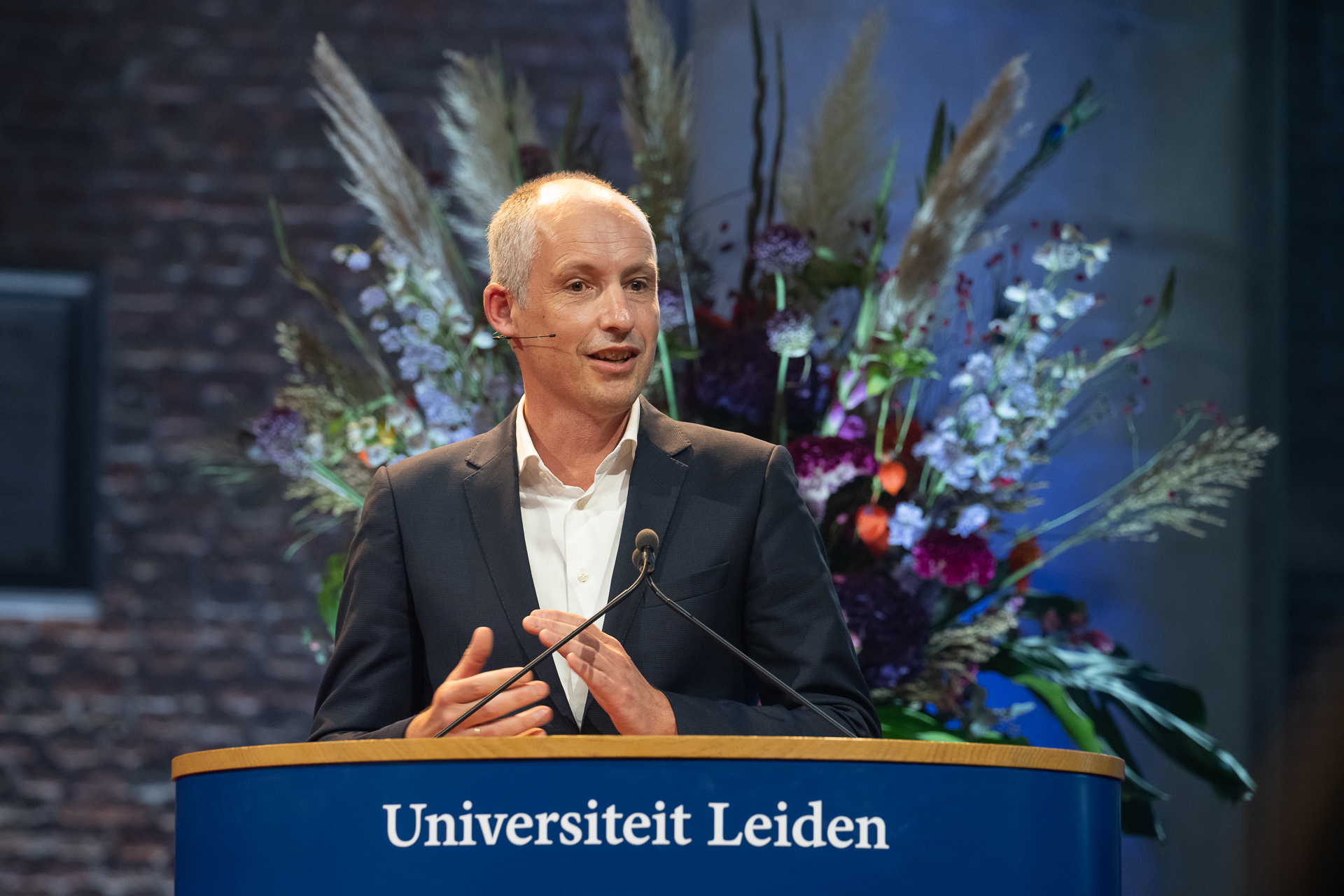
Martijn Ridderbos presents the Cath Prize. -
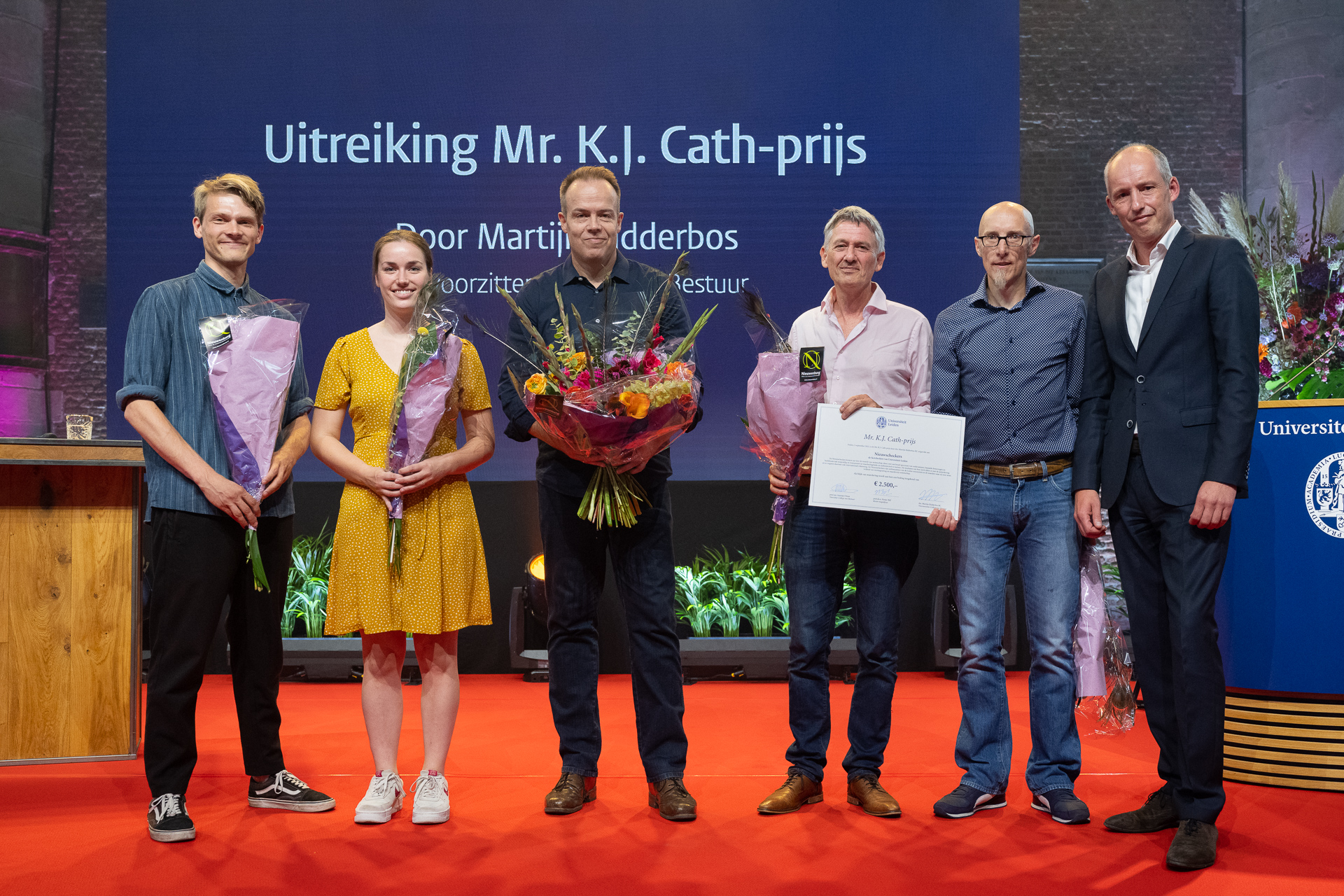
Nieuwscheckers, Leiden University’s fact-checkers, were awarded the Mr. K.J. Cath Prize.
Cath Prize for Nieuwscheckers
Then it was time for another prize. Nieuwscheckers, Leiden University’s fact-checkers, were awarded the Mr. K.J. Cath Prize. This biennial prize is awarded to students or staff who have enhanced the University’s good name. Martijn Ridderbos, Vice-Chairman of the Executive Board, presented the prize. ‘Their work is an ode to the value of science – the value-free production and verification of knowledge – and a good example of how we can, and wish to, serve society. Researchers – and politicians and policymakers too – can only do their work if this is based on knowledge and checked facts,’ said Ridderbos.
Finally, Ottow once more addressed the audience and all the University’s students and staff. ‘I can see resilience and am proud that you together form this community with its incredible energy. We can leave this Pieterskerk in good spirits.’
Video
Due to the selected cookie settings, we cannot show this video here.
Watch the video on the original website or